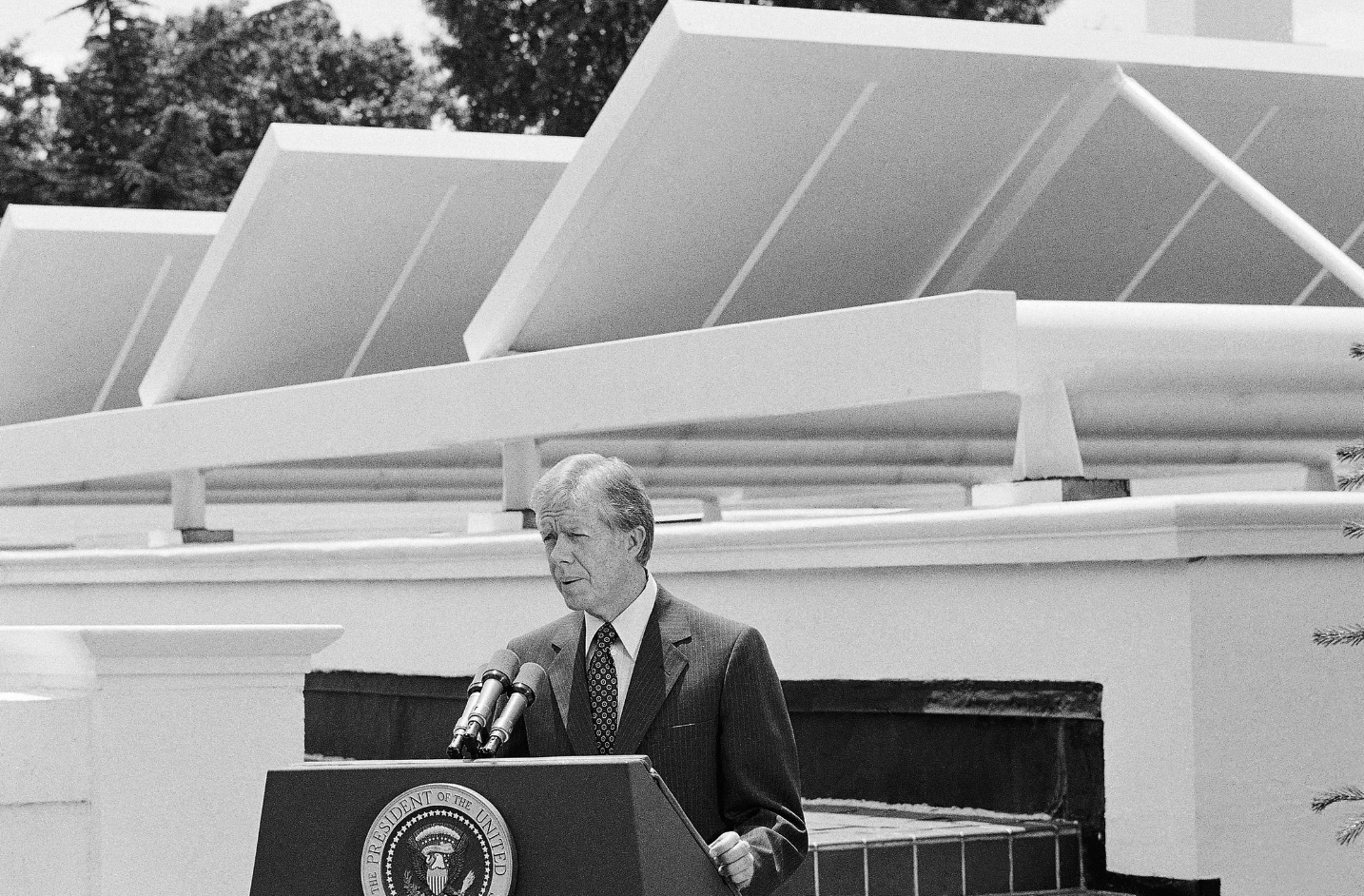
Jimmy Carter Library

Audio By Carbonatix
Born 99 years ago today, Jimmy Carter, the 39th President of the United States, had a remarkable life that epitomized American progress and social change. He came from humble beginnings, growing up on a farm in Georgia without electricity or running water. Carter first left Georgia in 1943 to study nuclear engineering at the U.S. Naval Academy, expressing an early interest in science and technology. After returning to Georgia and experiencing a rapid rise in state politics, he became president during a transformative time in the late twentieth century. Carter’s contributions extend into the 21st century through his dedication to renewable energy and global health.
During his presidency, Carter showed unwavering commitment to progressive energy policies in response to oil price shocks and Middle East instability. He successfully passed five major energy-related packages through Congress and implemented significant environmental legislation. Carter’s initiatives included the Emergency Natural Gas Act, the Department of Energy Organization Act and the National Energy Act (NEA), which laid the foundation for energy independence, renewable energy adoption and reduced oil consumption.
President Carter’s journey left an indelible mark on energy politics and the nascent movement for renewable power. Many historians consider him one of the most environmentally friendly leaders in American history. His impact can be seen throughout Colorado, where he helped with land conservation, protected rivers and habitats, and established the Environmental Protection Agency’s Superfund framework. Above all, President Carter played a crucial role in promoting renewable energy and technology, seeing them as vital tools for protecting the environment and advancing modern life.
One of Carter’s major achievements was establishing the Solar Energy Research Institute (now known as the National Renewable Energy Laboratory) in Golden. This federal agency has played a crucial role in the United States’ efforts to reduce carbon emissions. Carter also implemented a windfall profits tax on crude oil, a measure that hasn’t been repeated since.
Carter’s influence extended beyond energy policies to home appliances and energy technology. He introduced aggressive appliance energy-use standards through the Department of Energy, resulting in significant energy-efficiency improvements and literally trillions of dollars in cost savings for consumers cumulatively.

President Jimmy Carter taking on the energy crisis.
Jimmy Carter Library
These standards quietly revolutionized appliances, making them more powerful while using less energy and resources. The progress made in energy efficiency during Carter’s time transformed environmental efforts and paved the way for whole-home electrification and net-zero buildings.
Carter’s most iconic moment in renewable energy advocacy was installing solar panels on the White House roof. He set a national goal of obtaining at least 20 percent of the nation’s energy from renewable sources by 2000, which was well on its way to being achieved when he left office.
Although subsequent administrations scaled back Carter’s plans, he laid a critical foundation for the progress of solar energy. The price of solar energy has dropped significantly, enabling its widespread adoption. Colorado has made substantial advancements in renewables, quadrupling our production in clean electricity to 37 percent since 2010.
Carter’s pioneering work on energy policy, standards and renewable energy advocacy provided the foundation for the modern movement to electrify our society. His legacy can be seen in the cars we drive, the appliances we use, and clean energy efforts across the country.
In recent years, there has been a growing awareness of the need to invest in and aggressively pursue large-scale initiatives to electrify everything from buildings to transportation, and to power them with renewable energy. Inspired by the City of Denver’s aggressive climate action policies, I electrified my entire home in North City Park and began working for a local residential electrification startup, Helio Home.
Looking back, I find myself energized by Jimmy Carter’s work a half-century ago. Through his aggressive energy policies, advocacy for energy standards in appliances, and relentless focus on renewable energy far ahead of its time, President Carter became the founding father of the modern electrification movement. Carter’s fingerprints are all over our renaissance in clean technology and the fight to combat climate change.
In our current moment of volatile natural gas price spikes, we can all learn from Carter’s example and find inspiration in solving our energy and climate crisis. We must continue building on his vision to mitigate the worst effects of climate change. The stakes have only grown greater.
Sekhar Paladugu is an American history enthusiast and software engineer at electrification startup Helio Home in Denver.